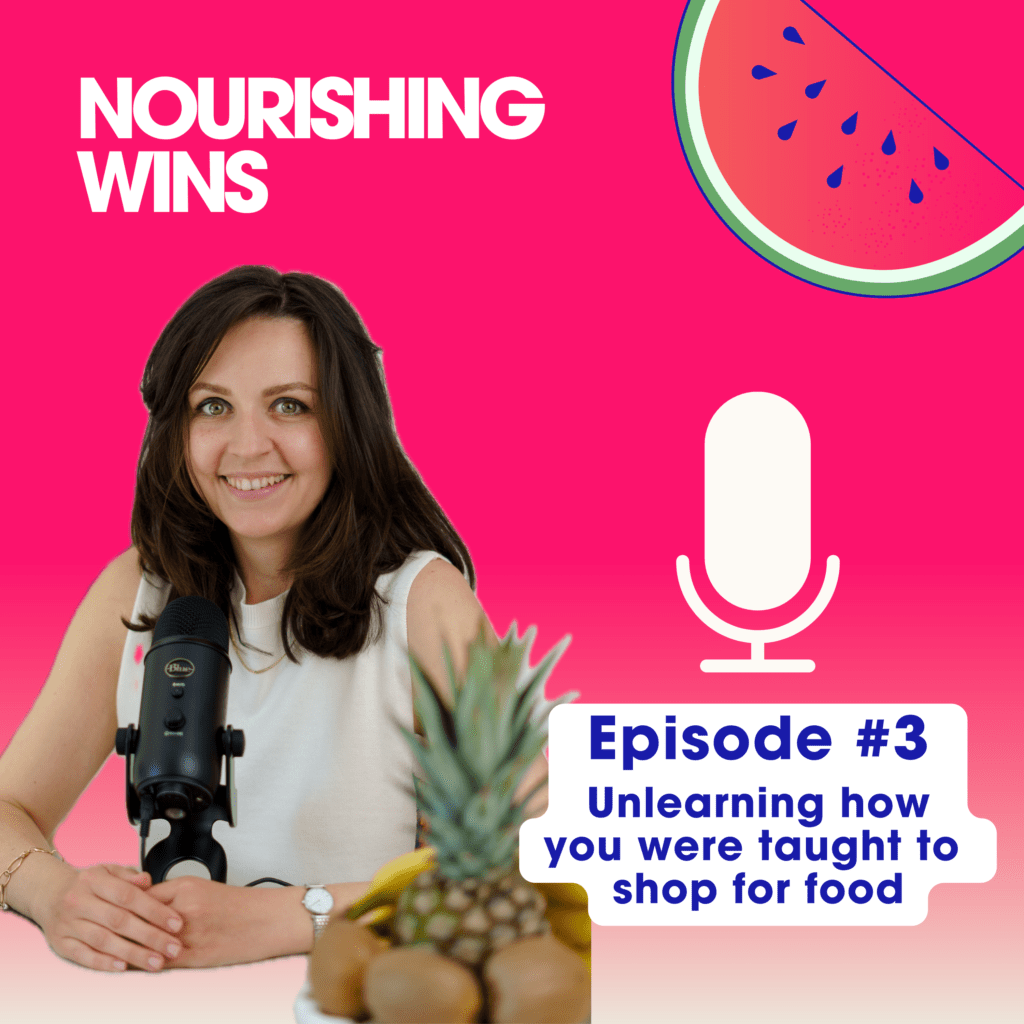
Listen on your Podcasting App
Show Notes
In this episode, we will talk about how expecting to get results fast sets us up for failure, whether we are trying to eat healthily, lose weight or make other meaningful changes in our life.
While frustration when things don’t happen quickly is normal, learning how to overcome it and drawing your motivation and pride from other things can keep you going for longer periods of time.
I will also offer something else you should focus on, instead of being in a hurry to get to the final result. Your journey will be much more pleasant and the chances of success higher.
You will learn:
- that the environment we evolve in teaches us to seek instant gratification for everything that we do
- that mostly all things that matter require effort and time
- specifically why losing weight too fast can be counterproductive and impact your ability to have a normal weight for years to come
- the benefits of taking the time necessary to prepare your own meals
- what you should focus on so that you keep your motivation throughout the process of changing the way you eat and losing weight sustainably
📺 Follow me on Instagram @cristina.nutrityv
💌 Join my free weekly newsletter
Follow on LinkedInTranscript
In this episode I want to talk about our common expectation to get things fast.
Whether it is an Amazon order, the time it takes to prepare our meal or the results of changing the way we eat. And how having this expectation sets us up for disappointment, stagnation and, in the end, failure to reach any ambitious objective. I will also offer something else that we can focus our attention on instead.
We live in a culture rooted in instant gratification. We expect everything to be delivered to us quickly: short videos, summaries of books instead of reading the whole book, same day delivery, FAST food
We also want things like grocery shopping, cooking and even eating to be fast, otherwise they are not worth doing.
“We don’t have the time”.
We overlook the side benefits of going deeply into an activity, dedicating it our time and attention.
Reading a whole book also develops your language skills, reasoning, focus and concentration, it’s not just about receiving a message or an idea.
Doing groceries, choosing foods and recipes and cooking also creates a sensory connection between you and your food and a sense of autonomy, pride and achievement. Disconnecting from food and seeing it like the oil you fill your car with estranges you from your body, from what it means to be human.
Weight loss diets also promise to bring results in a short time. Few people question their effectiveness in the long-term.
Do you want to weigh less 5 years from now? It’s too far away into the future.
You want to be lean now. So you choose to believe that this or that diet is the solution.
But all things that matter take time.
Including the negative ones: gaining weight or developing chronic disease. They also take time. Reversing the pattern of eating and living that lead to gaining weight also needs Tiiime to show the results you want.
You get frustrated and demoralized when things don’t happen quickly. It’s natural. It’s normal. But this human trait is actually setting you up to fail.
Let’s take a close look at diets in particular and see how fast results can actually be counterproductive.
The term crash dieting refers to a weight-loss diet undertaken on an urgent, short-term basis with the aim of achieving very rapid results.
Almost all diets work in the beginning. Restricting caloric intake (including protein) leads to losing some fat but also muscle. And probably water too.
It is very common for people going through a diet to hit a ceiling at some point: a certain number on the scale they cannot go below, even if they continue to comply with the diet or restrict their calorie intake even more.
Here are two mechanisms that can explain this phenomenon.
Rapid weight loss reduces your metabolic rate more than gradual weight loss. The metabolic rate is how fast your body is burning calories. If it decreases, it means that you will consume less calories for the same activity level.
What is more upsetting is that this reduction in metabolic rate persists long after you stop dieting. I see this often, those of you that were on diets before have a difficult time starting to lose weight again and it may be because of this persistent reduction in the metabolic rate, which sometimes can take years to reset.
All weight loss causes this reduction but the gradual one is less pronounced, even when the same amount of weight is lost overall.
Working with your body and your unique responses to food, physical activity, stress and sleep is the only way you can get back to a healthy metabolism. And it doesn’t have to be unpleasant. If you are not in a hurry, if you don’t want things fast, you can take pleasure in the process of treating your body well, in nurturing it. For the sake of the process, not of the end result.
A second reason that can explain the weight loss ceiling is our body’s set point. You can look at this as your programmed weight, the weight that your body will return to. Restricting calories too fast can mean food scarcity to your body. In trying to keep you alive as much as possible, your body will store more of the glucose you have available and avoid using the existing fat deposits.
If you try to get thin with crash diets, besides the fact that it will require a lot of restrictions and willpower, you would need to eat less and less just to maintain the same weight.
In the long run, you could even gain more weight than you had to start with. For people with obesity, a meta-analysis of 29 long-term studies shows that more than half of the lost weight was regained within two years, and by five years more than 80% of it was regained.
Let’s talk about another area where you expect things to be fast. I often hear that cooking your own meals takes time. And it certainly does, it takes more time than buying takeaway, or pizzas or other quick fixes for your meals. If it’s not the main way you feed yourself, it is ok to enjoy the spare time from not having to prepare food and clean up the kitchen. The problem is when it becomes the rule, instead of being the exception.
When you cook, you decide to keep control over what goes into your body, you decide to invest your time in your health and that of your family. You make it your priority. And the time spent is not wasted, not any drop of it. Eating what you have created out of whole, healthy and fresh ingredients provides a feeling of accomplishment, you send signals to your brain that you value your health, that you are the type of person that puts their health first. And weight loss (when you are overweight) should be nothing more than returning to a state of health and balance. Wanting things fast when it comes to what you eat, most often means cutting back on quality and nutrient-density.
So how do you go from wanting instant results and generally wanting things to happen fast to having the patience required by most endeavors that matter?
The key is to focus our attention on incremental progress. Incremental. Small improvements that add up to important results over time.
Sustained incremental progress also means consistency, another thing you can be proud of.
Those that want things fast will probably lack the consistency to keep working on something.
If you are just starting to learn about whole foods and how to put together a meal from scratch, then you will probably not get the best dish in an optimal time from the beginning.
Instead of losing your motivation because you didn’t acquire the skill of cooking fast enough, you should think about,… FOCUS on the progress that you make. Instead of buying and eating processed foods, you got whole vegetables and you ate a meal that you made from scratch. Tomorrow it will go faster.
Instead of getting discouraged because you don’t lose weight as fast as you would have wanted, think about how you have improved the quality of the food that you feed your body with. About how your body is healthier, receiving more love and support from you.
When I go running, I am not in a hurry to get to run, I don’t knok, 10km. I am actually proud of the consistency and the incremental progress I make. It becomes easier to run at the same speed so I go a bit faster. And I will probably be able to run longer soon. But I am not in a hurry. I just delight in the progress that I make.
So if you are in the process of changing your diet to eat healthily or lose weight, then take the time to enjoy the small wins along the way, to feel proud of the progress that you make, even if it doesn’t show on the scale. You are, without a doubt, doing a lot of good to your body.


